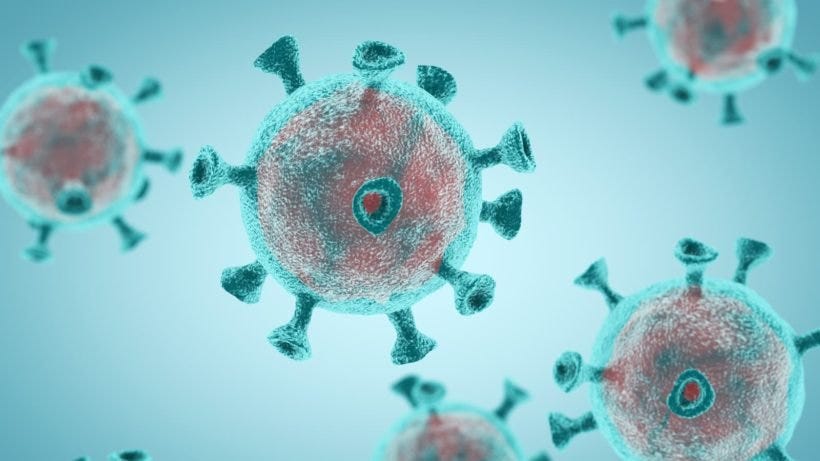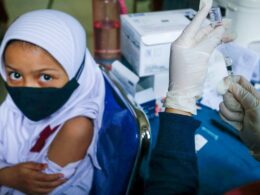CNBC Africa
Karen Gilchrist
FRI, 10 JUN 2022
Site version edited by
Joaquim Cardoso MSc.
Health Transformation Institute
continuous transformation
for better health, care, costs and universal health
Pandemic Response Transformation Unit
July 3, 2022
Key points:
- As the Covid-19 pandemic and resultant social restrictions have abated in much of the world, other viruses are rearing their heads in new and unusual ways.
- Influenza, Respiratory syncytial virus, adenovirus, tuberculosis and monkeypox are among a number of viruses to have spiked and exhibited strange behaviors in recent months.
- Health experts say Covid-19 restrictions could have reduced exposure and lowered immunity to infectious diseases, making society more vulnerable to new outbreaks.
- To prevent increases in these diseases, catch-up vaccination campaigns are needed globally
- Sustained funding to ensure medical resources are more accessible in low-income countries will help mitigate the impacts of the pandemic and ease the global health burden for everyone

Dowell | Moment | Getty Images
The Covid-19 pandemic has abated in much of the world and, with it, many of the social restrictions implemented to curb its spread, as people have been eager to return to pre-lockdown life.
But in its place have emerged a series of viruses behaving in new and peculiar ways.
Take seasonal influenza, more commonly known as the flu. The 2020 and 2021 U.S. winter flu seasons were some of the mildest on record both in terms of deaths and hospitalizations. Yet cases ticked up in February and climbed further into the spring and summer as Covid restrictions were stripped back.
“We’ve never seen a flu season in the U.S. extend into June,” Dr. Scott Roberts, associate medical director for infection prevention at the Yale School of Medicine, told CNBC Tuesday.
“Covid has clearly had a very big impact on that. Now that people have unmasked, places are opening up, we’re seeing viruses behave in very odd ways that they weren’t before,” he said.
And flu is just the beginning.
Respiratory syncytial virus, a cold-like virus common during winter months, exhibited an uptick last summer, with cases surging among children in Europe, the U.S and Japan. Then, in January this year, an outbreak of adenovirus 41, usually responsible for gastrointestinal illness, became the apparent cause of a mysterious and severe liver disease among young children.
Elsewhere, Washington State has been experiencing its worst flare-up of tuberculosis in 20 years.
And now, a recent outbreak of monkeypox, a rare viral infection typically found in Central and West Africa, is baffling health experts with over 1,000 confirmed and suspected cases emerging in 29 non-endemic countries.
Viruses behaving badly
At least two genetically distinct monkeypox variants are now circulating in the U.S., likely stemming from two different spillover infections from animals to humans, the U.S. Centers for Disease Control and Prevention said last week.
Restrictions reduce exposure, immunity
One explanation, of course, is that Covid-induced restrictions and mask-wearing over the past two years have given other infectious diseases little opportunity to spread in the ways they once did.
Where viruses did manage to slip through, they were frequently missed as public health surveillance centered largely on the pandemic.
That indeed was the case in Washington’s tuberculosis outbreak, according to local health authorities, who said parallels between the two illnesses allowed TB cases to go undiagnosed.
Missed childhood vaccinations
That could explain the uptick in curious severe acute hepatitis cases among children, according to health experts who are looking into possible links to Covid restrictions.
“We are also exploring whether increased susceptibility due to reduced exposure during the Covid-19 pandemic could be playing a role,” the U.K. Health Security Agency said in April.
The Centers for Disease Control and Prevention has also expressed concern that lockdowns may have caused many children to miss childhood vaccinations, potentially raising the risks of other vaccine-preventable illnesses such as measles and pertussis.
“During the Covid pandemic, access to primary care, including childhood vaccinations, was unavailable to many children,” Jennifer Horney, professor of epidemiology at the University of Delaware, told CNBC.
“To prevent increases in these diseases, catch-up vaccination campaigns are needed globally,” she added.
“To prevent increases in these diseases, catch-up vaccination campaigns are needed globally,” she added.
Beware surveillance bias
That said, there is also now greater awareness and surveillance of public health issues in the wake of the pandemic, making diagnoses of some outbreaks more commonplace.
Originally published at https://www.cnbcafrica.com on June 10, 2022.
NAMES MENTIONED:
Jennifer Horney, professor of epidemiology at the University of Delaware, told CNBC.
Declaration from the Bill and Melinda Gates Foundation
“The Covid-19 pandemic has abated in much of the world and, with it, many of the social restrictions implemented to curb its spread, as people have been eager to return to pre-lockdown life. But in its place have emerged a series of viruses behaving in new and peculiar ways.”
Sustained funding to ensure medical resources are more accessible in low-income countries will help mitigate the impacts of the pandemic and ease the global health burden for everyone
Sustained funding to ensure medical resources are more accessible in low-income countries will help mitigate the impacts of the pandemic and ease the global health burden for everyone
RELATED ARTICLES












